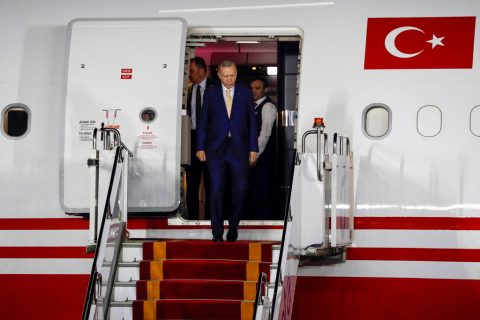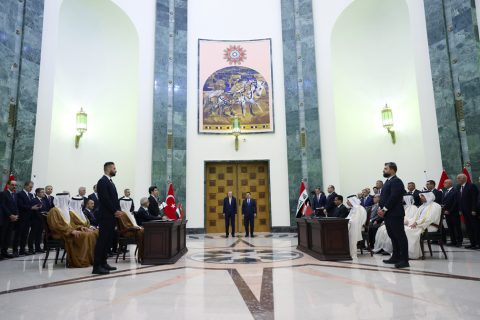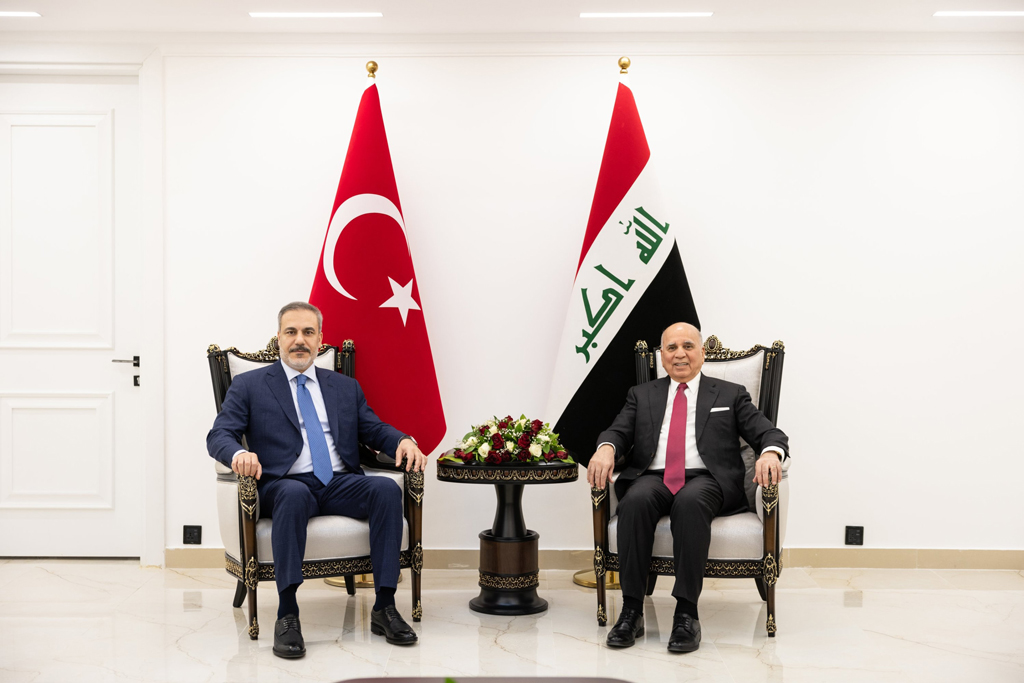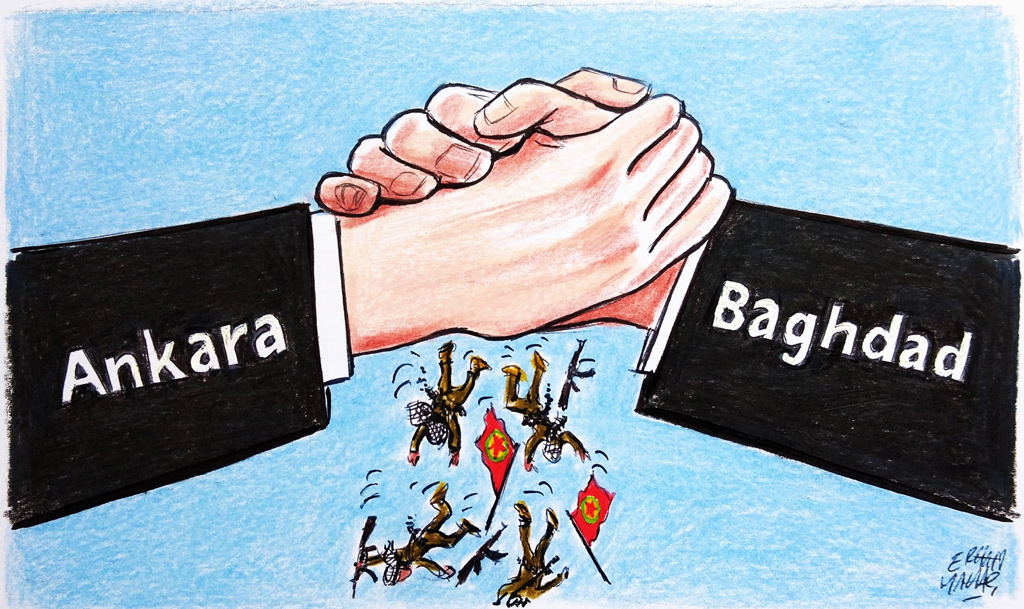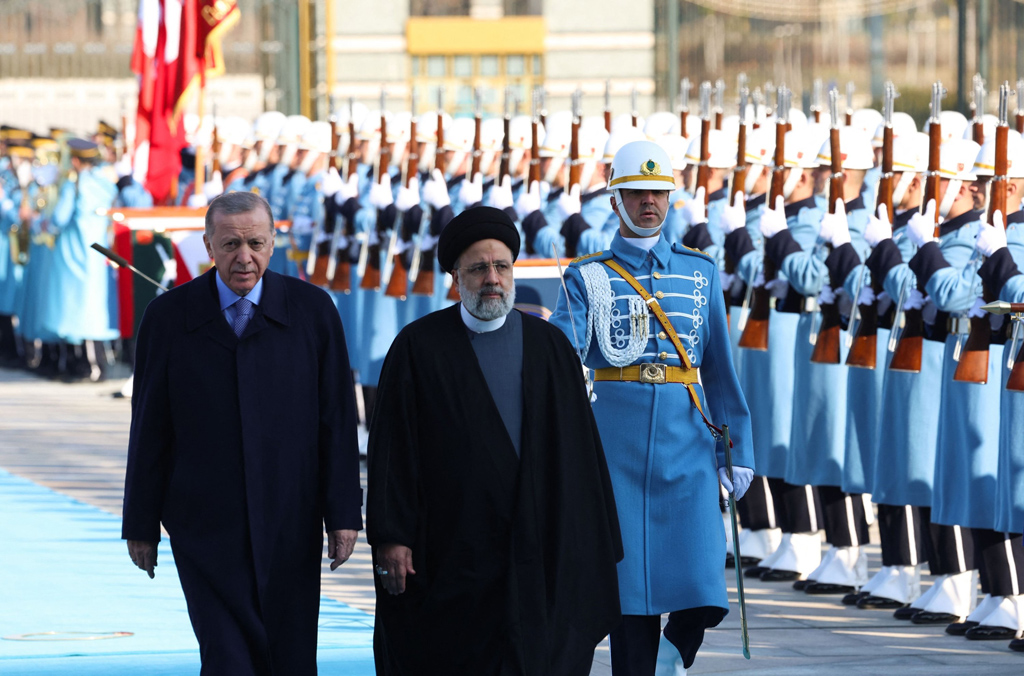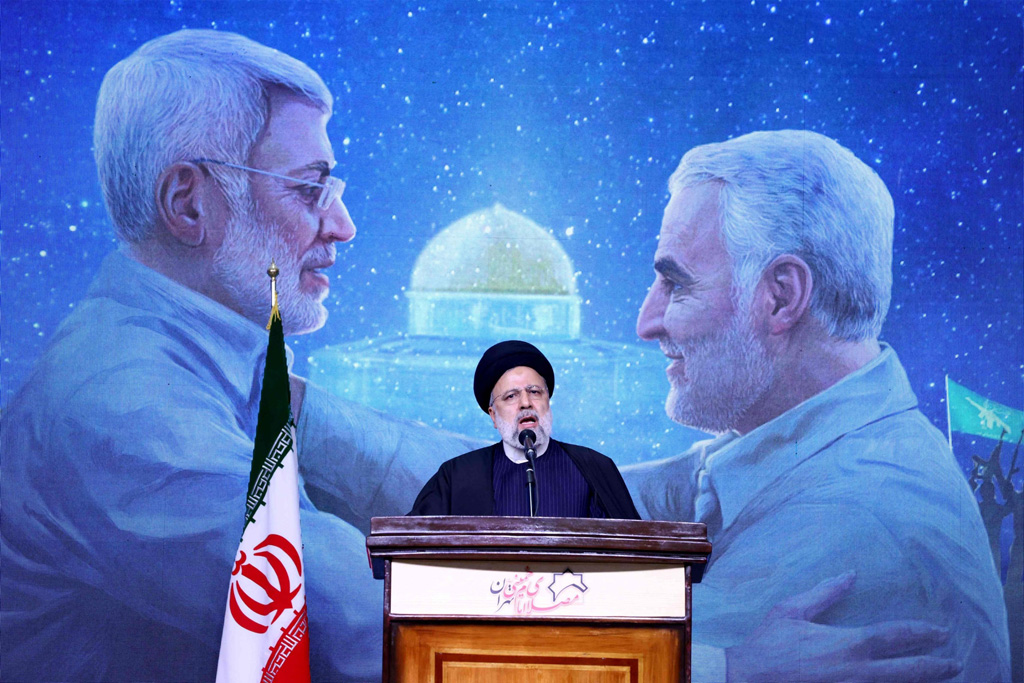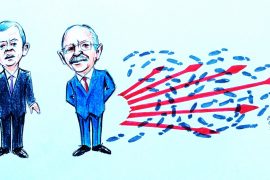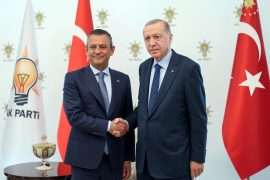Iraq

Historical Landmark in Türkiye-Iraq Relations and Opportunity for Strategic Partnership
| AnalysisTürkiye-Iraq relations in the post-U.S. invasion era progressed alongside the controversial Northern Iraqi independence referendum …
-
Analysis
Historical Landmark in Türkiye-Iraq Relations and Opportunity for Strategic Partnership
By Fatih Oğuzhan İpekThis study argues that the problems between Erbil and Baghdad, and their prolonged existence prevent Türkiye from deepening cooperation with Iraq in terms of security, water issues, and economic relations
-
Opinion
Erdoğan’s landmark visit to Iraq
By Murat YeşiltaşPresident Recep Tayyip Erdoğan’s recent visit to Iraq could mark the beginning of a new chapter in the longstanding relationship between Türkiye and Iraq. During his visit to Baghdad, Türkiye and Iraq signed a strategic framework agreement that addresses a variety of issues, ranging from security to economic cooperation. This agreement represents the culmination of nearly a year of productive high-level discussions between the two countries. Furthermore, President Erdoğan’s first visit to Iraq since 2011 has established new connections between Türkiye, Iraq, the United Arab Emirates (UAE) and Qatar, enhancing the region’s geo-economic landscape.
-
Opinion
A fresh start in Türkiye-Iraq relations
By Burhanettin DuranUnder the strategic framework agreement for joint cooperation, which the two countries inked in Baghdad, their bilateral relations have been elevated to the level of strategic partnership with a “qualitative leap.” The Turkish and Iraqi governments created a road map for future cooperation. Their commitment to solving problems and elevating their cooperation to the highest level rests on the “win-win” principle. Accordingly, the Turkish delegation, which included eight Cabinet ministers, focused on a broad range of issues, including counterterrorism, cross-border waters, security, the defense industry, trade, health care, communication, education, energy and transportation.
Bu Konuda Daha Fazla
-
Strategic rationality behind Türkiye-Iraq rapprochement
By Murat YeşiltaşRecent months have seen a flurry of diplomatic activity between Türkiye and Iraq, culminating in a significant agreement in Baghdad last week. This accord signals a mutual eagerness to close a chapter of discord and paves the way for a comprehensive consensus on a range of issues, including a unified stance against the PKK. With President Recep Tayyip Erdoğan’s impending visit to Baghdad, and potentially Irbil, in April, this strategic alignment not only promises a sustainable framework for bilateral ties but also portends regional ramifications.
-
New era for Turkish-Iraqi ties heralds key developments
By Burhanettin DuranTürkiye and Iraq issued a joint statement following last week’s security summit in Baghdad, marking the beginning of a new chapter in bilateral relations.
-
New escalation in regional conflict
By Kadir ÜstünThe killing of three American soldiers in Jordan by pro-Iran militias via UAV strikes initiated a new escalation in the escalating regional conflict. Since October 7th, concerns about regional warfare seemed obsolete. We previously noted Israeli Prime Minister Netanyahu's attempt to expand the Gaza conflict regionally and entangle the US in conflict with Iran. The Jordan attack partially succeeded in these efforts. Over the past week, the US conducted military operations in the region, signaling a response.
-
Complex dynamics of Türkiye-Iran relations
By Murat YeşiltaşTraditionally, Türkiye-Iran relations have been defined by a mix of competition and cooperation. Sharing a long land border and possessing a multidimensional historical depth, numerous dynamics simultaneously affect the relationship between the two countries.
-
Is Iran strengthening or becoming isolated?
By Burhanettin DuranAgainst the backdrop of Israel's massacre in Gaza, attention has been shifting to Iran. Following the bombardment of the Houthis by the United States and the United Kingdom for disrupting commercial shipping in the Red Sea, Iran and Pakistan experienced an escalation, with both sides firing missiles over terrorism. Moreover, Israel killed five members of the Revolutionary Guards Corps in Damascus last weekend, resuming its past operations against the Iranian presence in Syria. The seeming purpose of such strikes is to stop Iran from sending military aid to the Axis of Resistance – namely Hezbollah and Hamas. More important, however, is Israeli Prime Minister Benjamin Netanyahu's commitment to ensuring the Israeli-Palestinian conflict's regionwide spillover – which contradicts the Biden administration.

